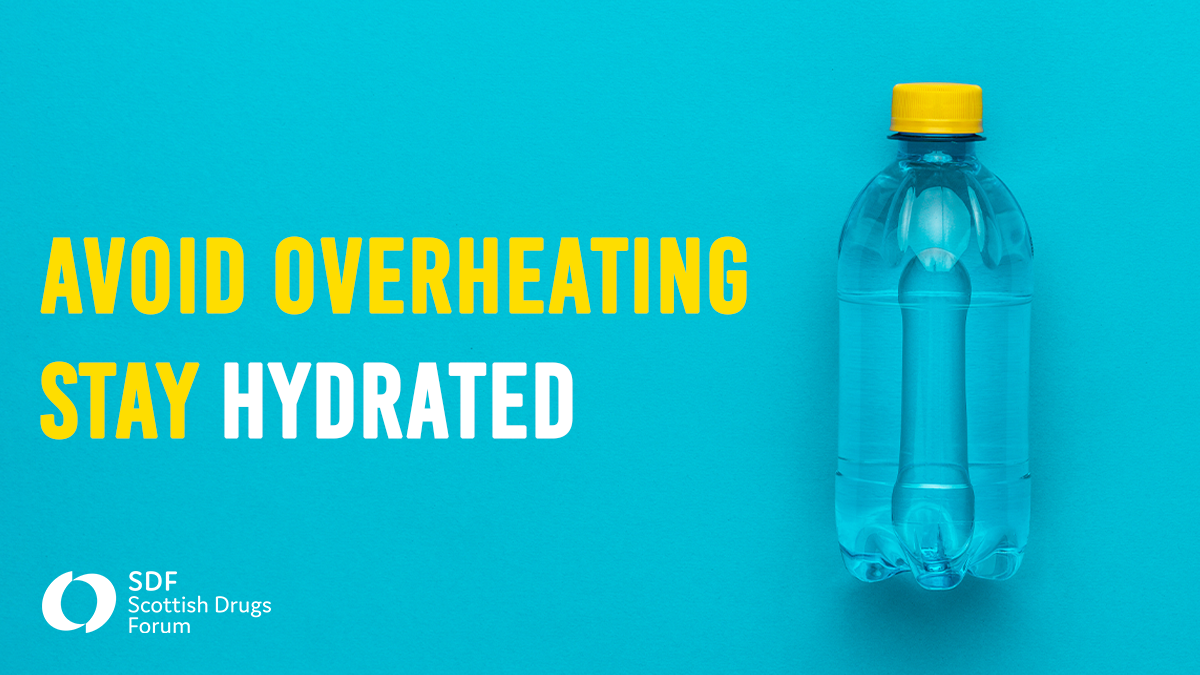
We are not always used to sunshine in Scotland and therefore people can forget the risks of dehydration in the warmer weather. A variety of substances can cause dehydration, these include alcohol, stimulants such as cocaine and ecstasy and opioids such as heroin or codeine. People who use drugs may be affected by homelessness or may spend prolonged periods outdoors exposed to the weather conditions with limited access to fluids and are therefore vulnerable to overheating and dehydration. Stimulant drugs can also cause overheating. This means it is especially important for people who use substances to maintain fluid intake and try to stay in the shade in the warmer weather.
Other things that can contribute to dehydration are having health conditions such as diabetes, being in the sun for too long, vomiting or diarrhoea and taking certain prescribed or over the counter medicines.
Hydrate safely
Substances can also affect urinary retention (ability to go to the toilet or empty the bladder) so drinking too much water too quickly can also be problematic, by causing low sodium levels which can cause cells in the body and brain to swell.
Drinking small sips of fluids throughout the day is the best way to stay hydrated. Safe limits to drink are no more than one pint in one hour. Fluids can include water, milk , sugar free drinks and tea or coffee although it is best to not drink too much caffeine. High water content foods like soup or fruits can also help you stay hydrated and keep your electrolytes up.
Do not stay for long periods in direct sunlight, and ensure you stay in the shade.
Check your pee
The colour and smell of your pee will help tell you if you are dehydrated, if your urine is dark and strong smelling, you need to drink more fluids. Your pee should be a pale, clear colour.
Other symptoms of dehydration include:
- Pain when passing urine
- Feeling thirsty
- Dry mouth, lips or eyes
- Feeling dizzy
- Headaches
- Feeling tired
- Finding it difficult to concentrate
If you become severely dehydrated, urgent medical attention is required as it can be fatal. Symptoms include:
- Not urinating for prolonged periods e.g. more than 8 hours or going less than 4 times in one day
- Feeling lethargic
- A weak or rapid pulse
- Seizures
- Reduced consciousness
For more information about staying hydrated, click here.
